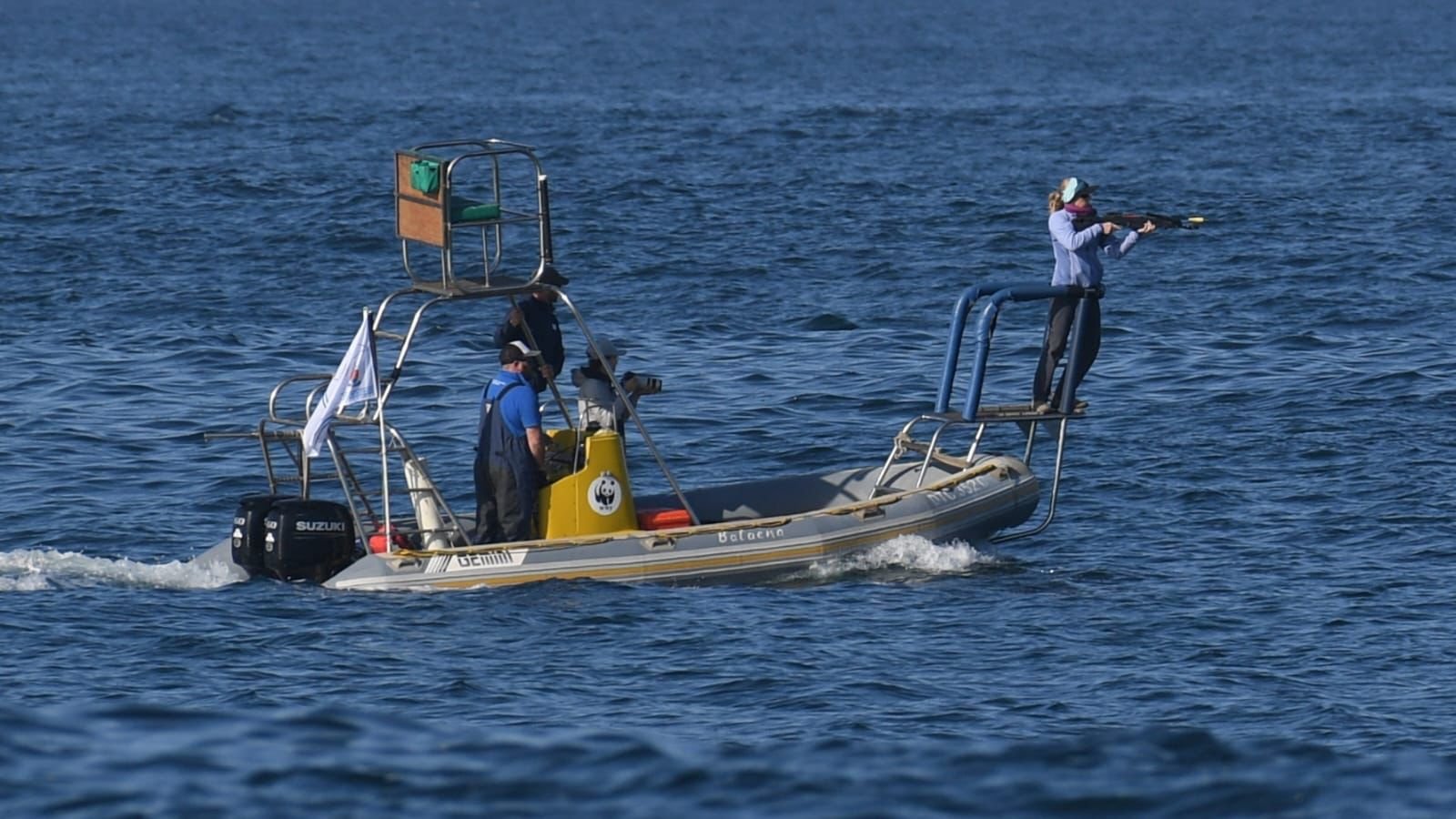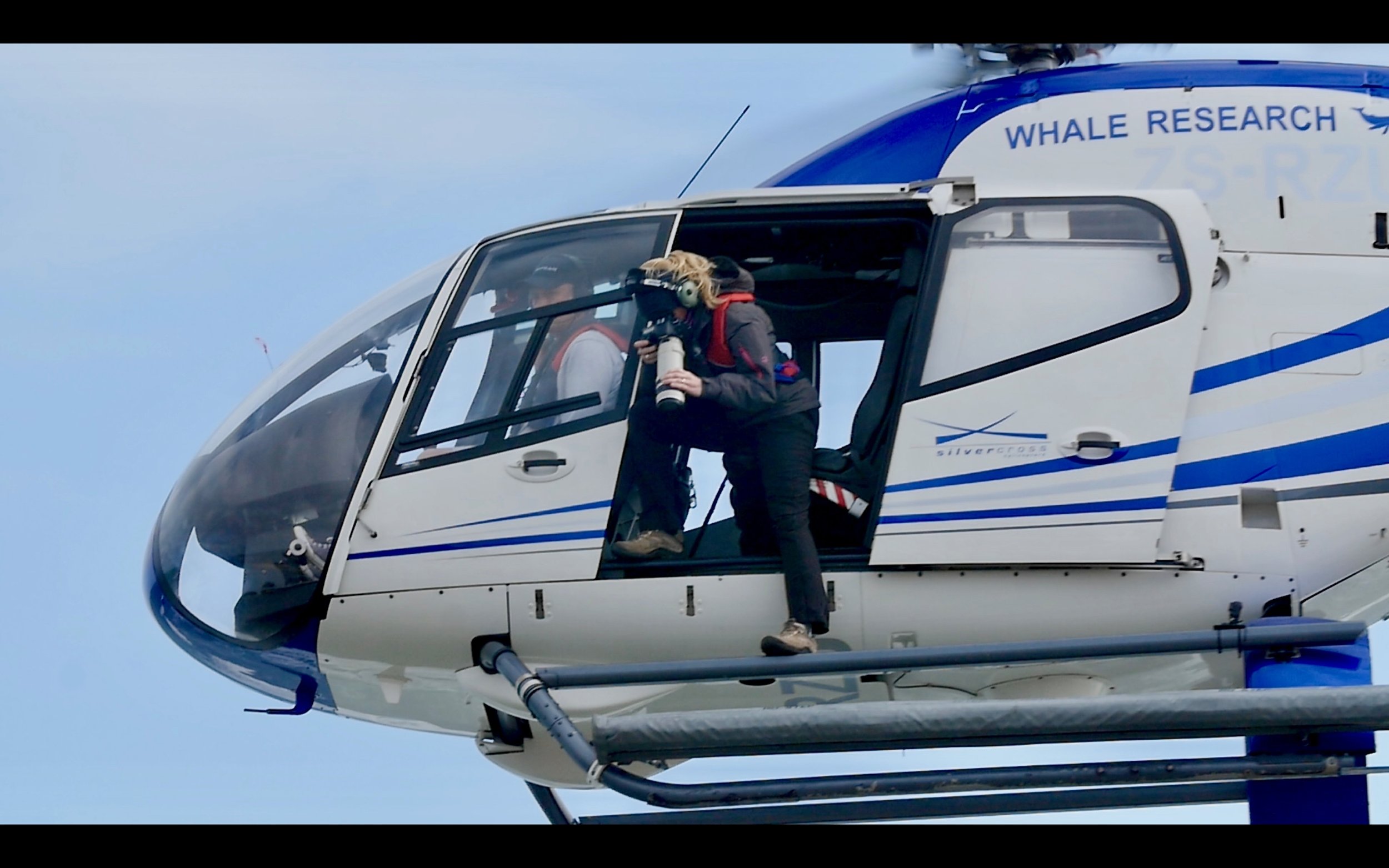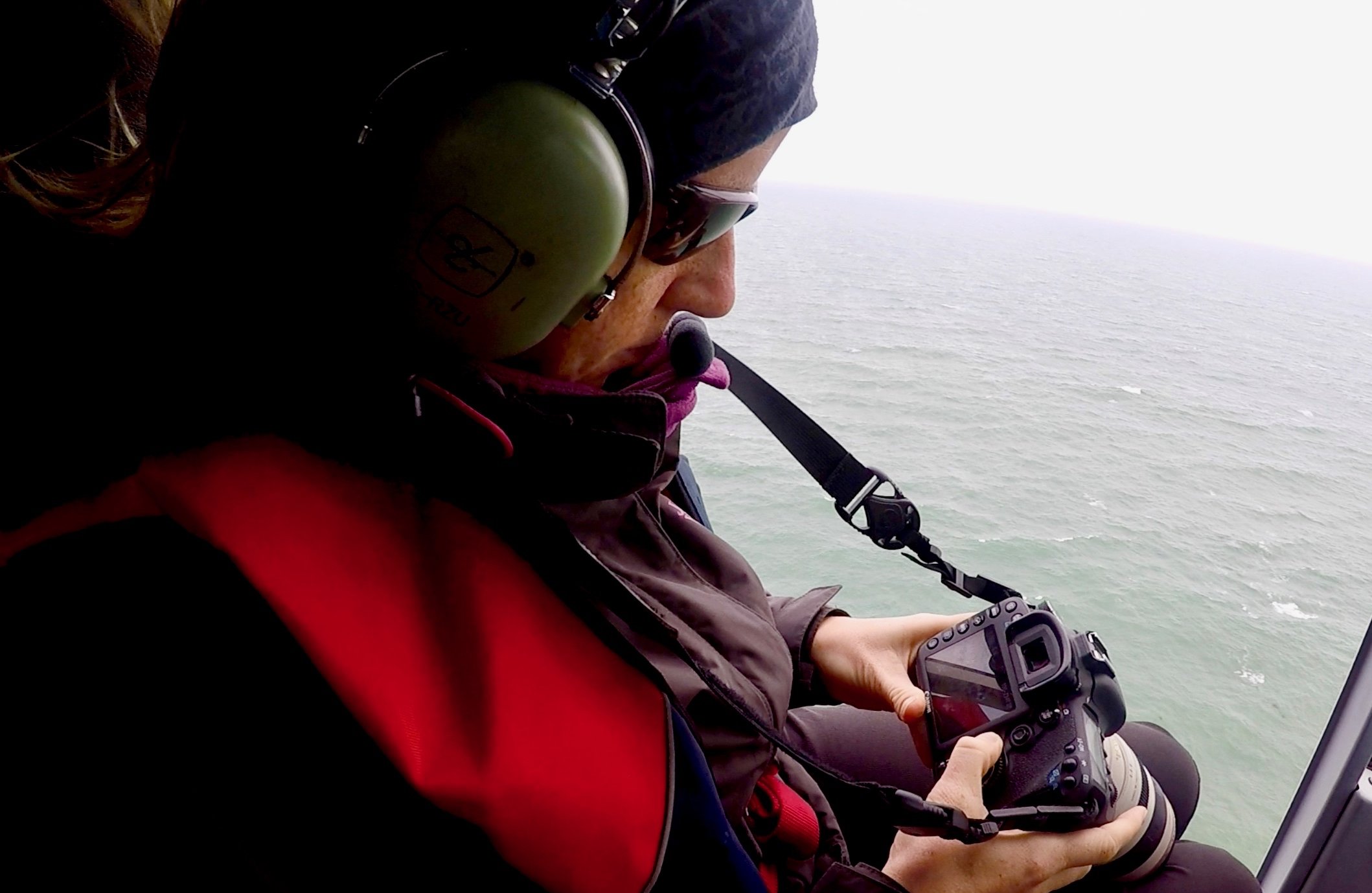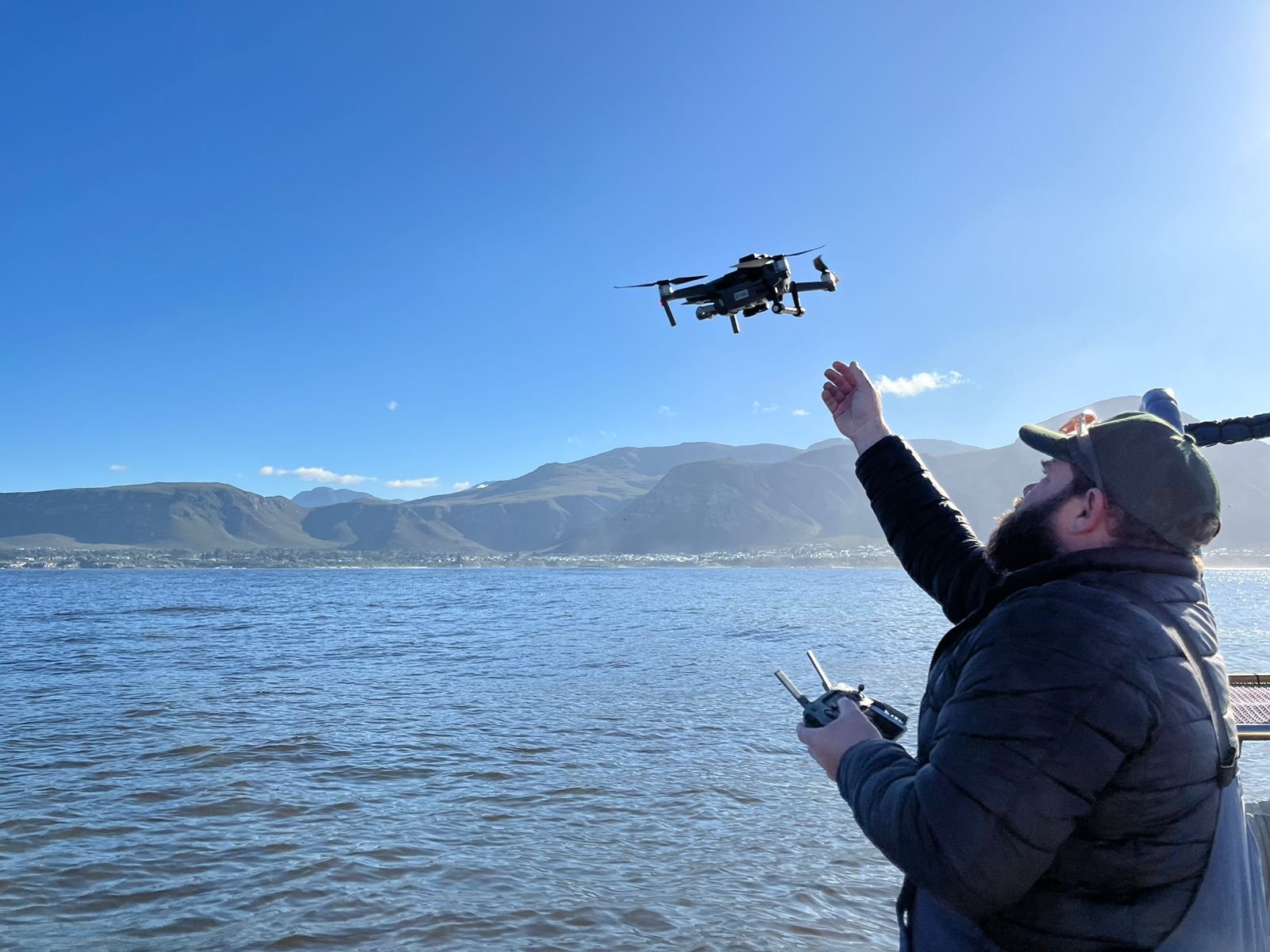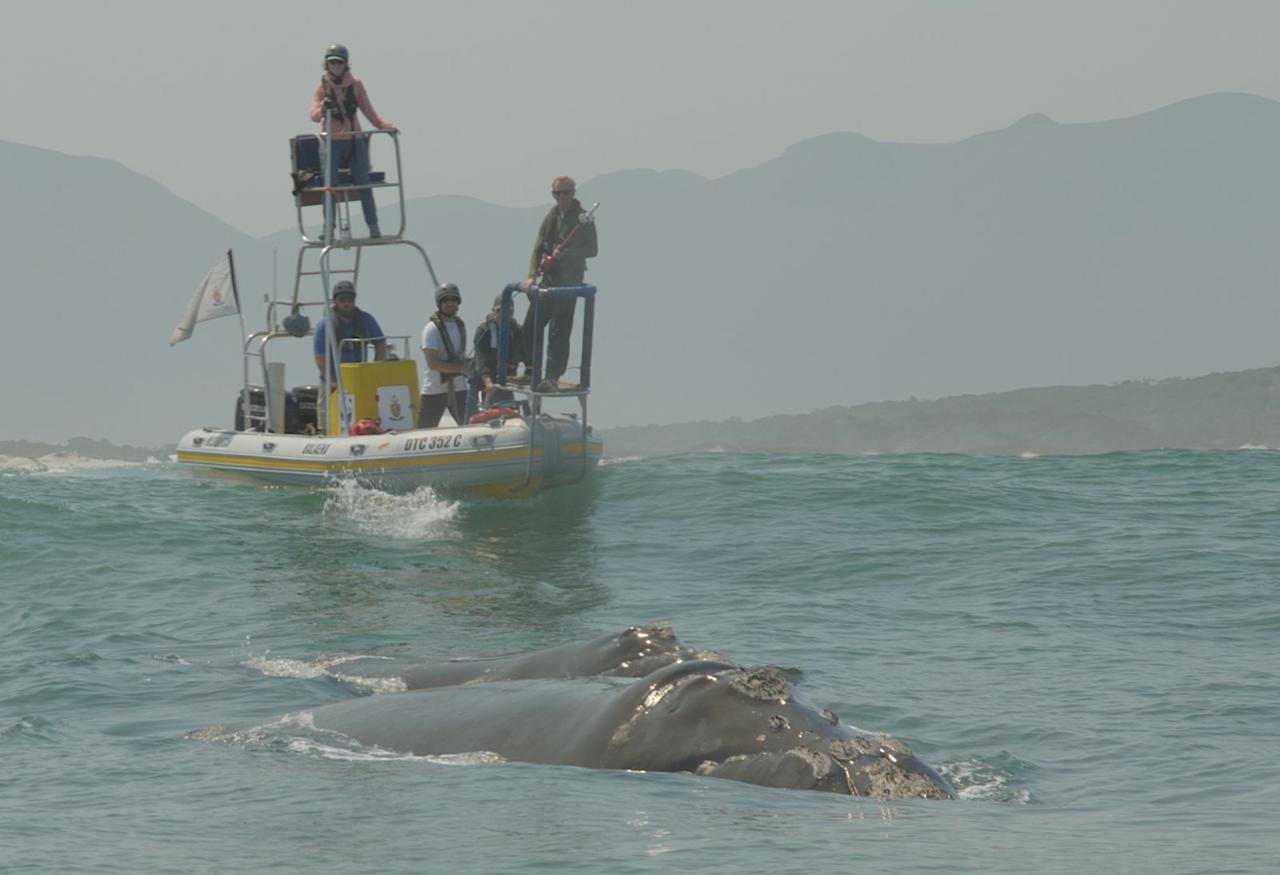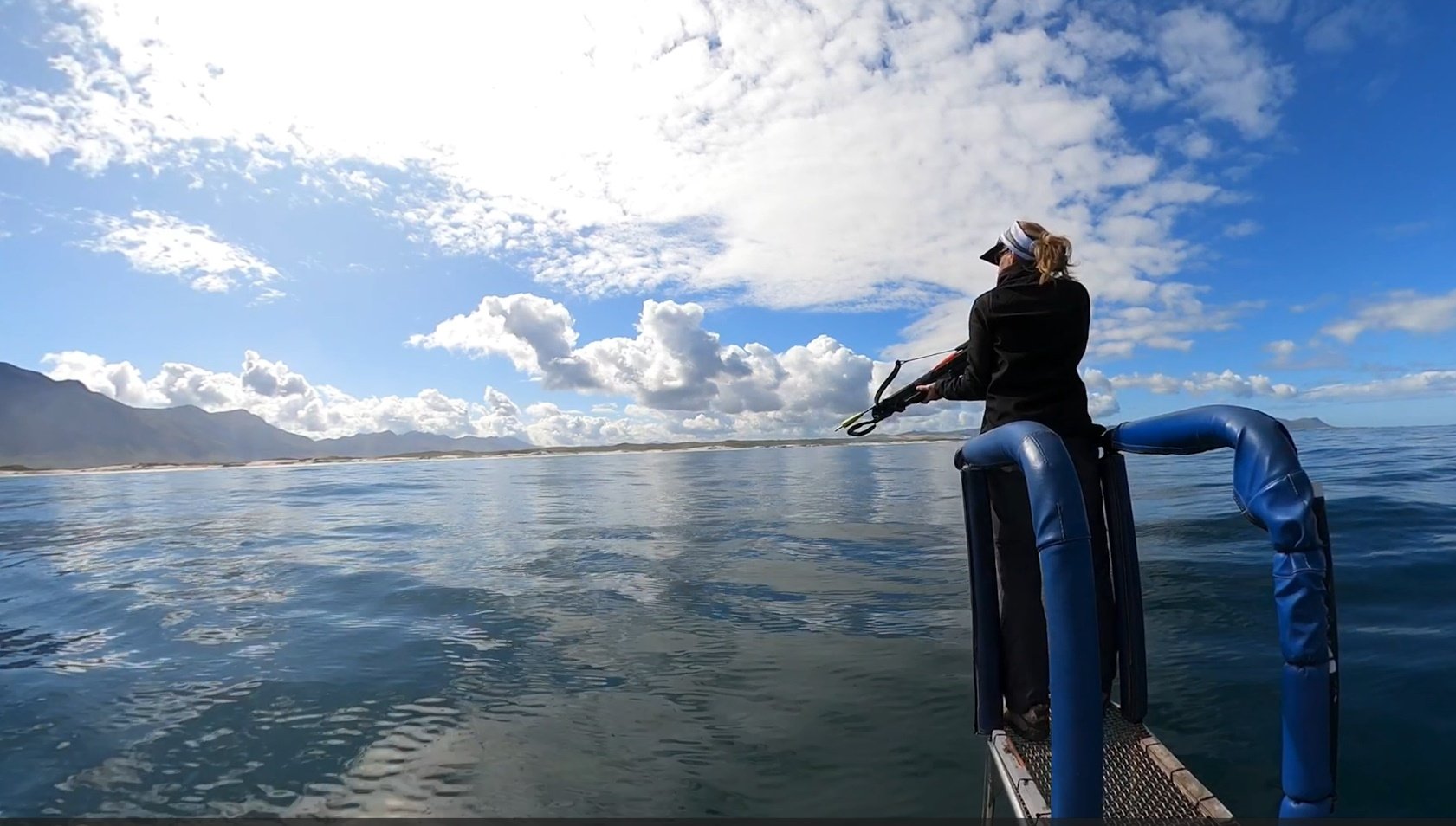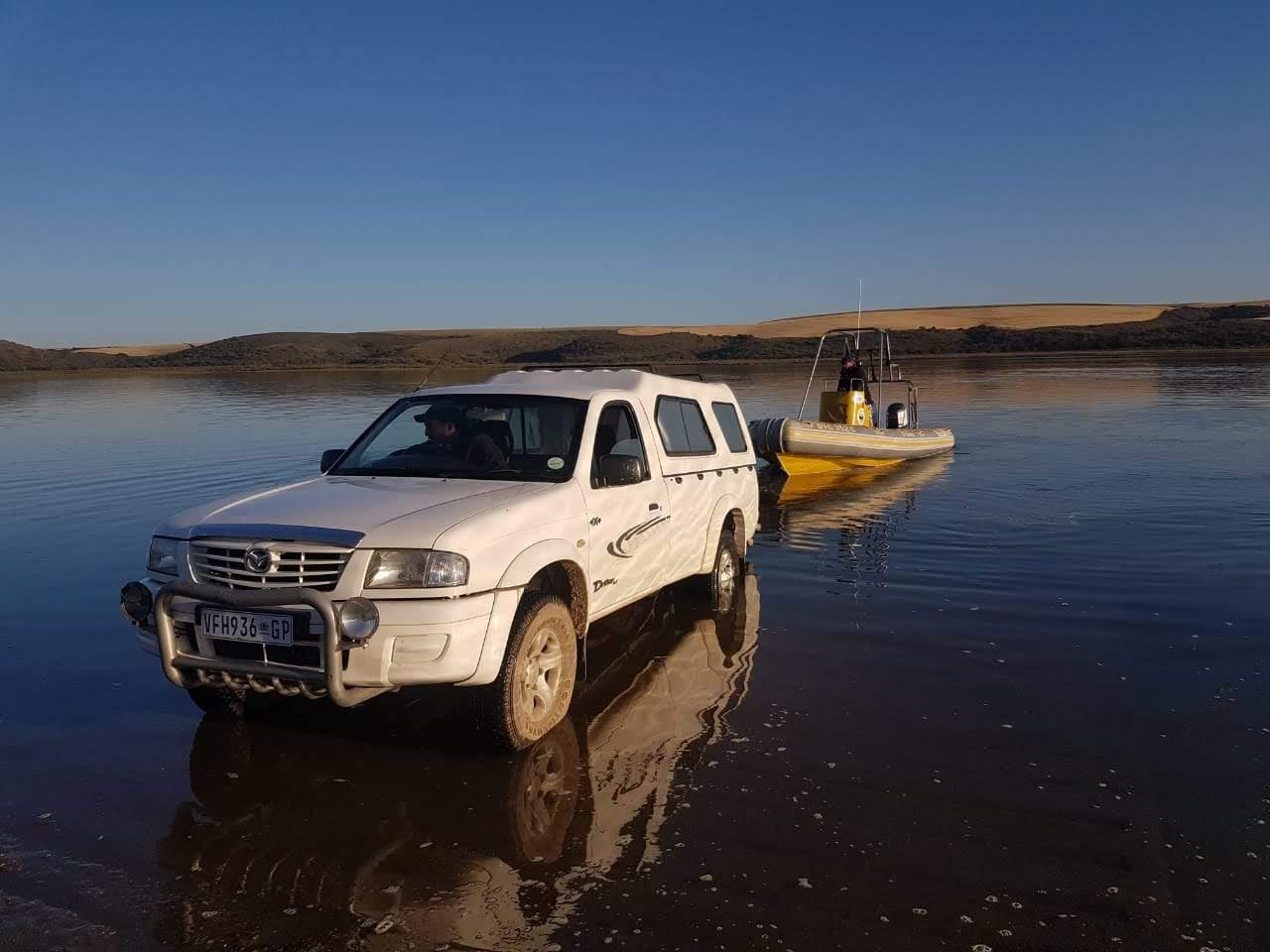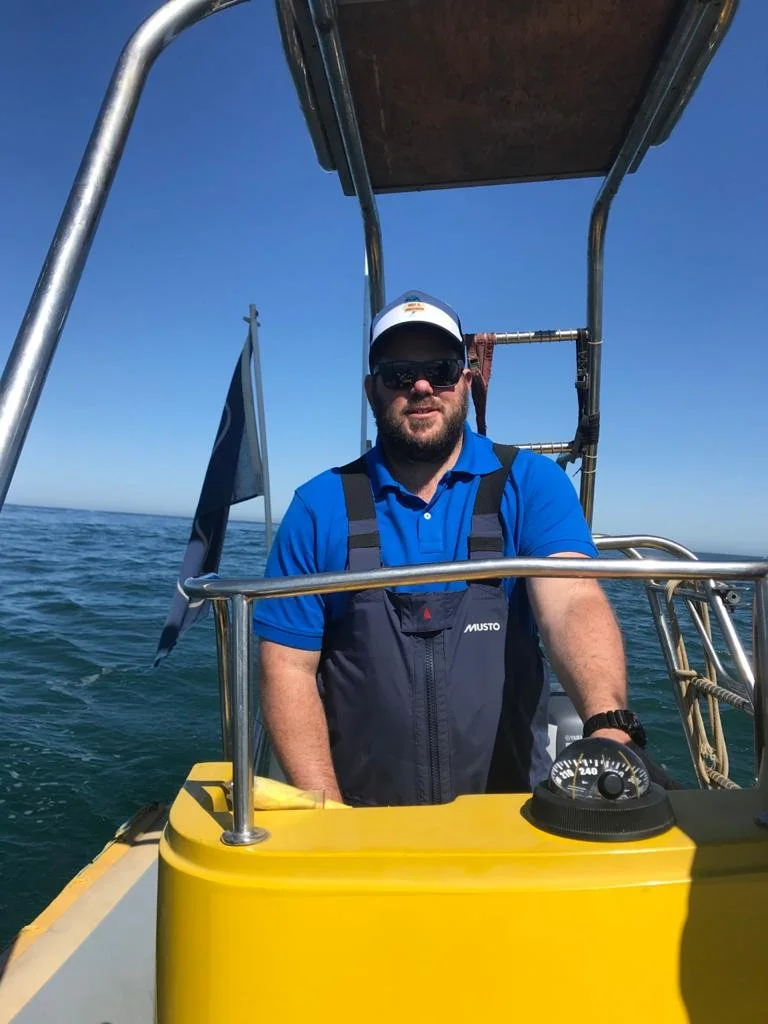Marine mammals have been studied at the MRI since the 1970’s, when work on Antarctic and Subantarctic seals began. This work formed the basis for the establishment of several long-term research projects that persist to this day. The formation of the MRI Whale Unit consolidated cetacean research at the MRI in the 1980’s.
Established in 1985, the Whale Unit is a global, African research, conservation and education facility that researches the ecology, population dynamics and behaviour of the diverse cetaceans (whales, dolphins and porpoises) in the southern African sub-region and surrounding oceans, with the principal objective of providing knowledge that will promote their conservation. A primary raison d'être of the Unit remains the development of human capacity in these areas. Research, Conservation and Education are interlinked to execute forward-looking programmes, integral for the understanding of conservation priorities for African cetaceans.
The Whale Unit possesses a wealth of expertise, intellectual property, and well-established knowledge resource bases. It has current national and international collaborations with over 30 organisations, is the lead in various research consortia and is actively involved in the work of the Scientific Committee of the International Whaling Commission (the intergovernmental body responsible for the management of whale populations) as well as the related Southern Ocean Research Partnership.
Multidisciplinary activities range across a broad national and international geographic and institutional spectrum and align within these themes:
Recovering Whales - The role of large whales in Southern Hemisphere Ocean Ecosystems
Large migratory whale population abundance and trends, and the related impacts of climate change
Large whale feeding ecology and migratory behaviour
Cetaceans of the South African EEZ - Assessing offshore cetacean ecology and distribution for conservation and sustainable ocean use
Microplastic Exposure in South African Cetaceans: Insights into pollution pathways and trophic transfer
Capacity building - Building marine research capacity in Africa
Management and policy - Application of science-based knowledge for the creation of national and international Conservation Management Plans
Support our research
Please consider a donation in support of our research. Simply choose the amount below and click the button “Pay Now”. Please email els.vermeulen@up.ac.za for a Section 18A tax certificate. Thank you!
Satellite tagging of southern right whales
Since 2021, we have been deploying satellite tags on adult southern right whales to track their migration and feeding behaviour in unprecedented detail. This research is crucial, as the past decade has seen significant changes in southern right whale migration patterns, reproduction, and body condition, likely driven by reduced prey availability in the Southern Ocean due to climate change. Each tag can provide up to a year of continuous data, helping us understand how these whales are responding to a rapidly changing environment.
This research project is run in collaboration with the following people and organisations:
Dr Alex Zerbini and Dr Amy Kennedy from the National Oceanic and Atmospheric Administration (NOAA), University of Washington’s Cooperative Institute for Climate, Ocean and Ecosystem Studies (CICOES/UW), and the Marine Ecology and Telemetry Research (MarEcoTel).
Funding for this work was provided by the National Oceanic and Atmospheric Administration (NOAA), the Marine Ecology and Telemetry Research (MarEcoTel), WWF Protecting Whales & Dolphins Initiative, a private donor (Marcel Weder), TotalEnergies, and the South African Polar Research Infrastructure, to whom we are very grateful.
The map below shows the tracks of adult southern right whales that were tagged in Walker Bay in 2025.
The map below shows the tracks of adult southern right whales that were tagged in Walker Bay in October 2021, 2022, 2023, and 2024.
Deployment of CTD tags, which provide us data on water temperature, salinity and depth at which the whale swims, runs in collaboration with Prof Mads-Peter Jorgenson from the Greenland Institute of Natural Resources, Prof Jonas Teilmann from Aarhus University, Dr Alexandre Zerbini from the National Oceanic and Atmospheric Administration (NOAA), University of Washington’s Cooperative Institute for Climate, Ocean and Ecosystem Studies (CICOES/UW), and the Marine Ecology and Telemetry Research (MarEcoTel) and Wildlife Computers. It is a project funded by the Office of Naval Research (ONR).
The map below shows the tracks of adult southern right whales, which were tagged with CTD tags in Walker Bay in October 2023 and 2024
Satellite tagging of HUmpback whales
Since 2025, we have been deploying satellite tags on adult humpback whales to track their movement pattern and feeding behaviour along our west coast during the summer months. These tracks help us understand where humpback whales concentrate their foraging effort, how they move through dynamic coastal ecosystems, and which areas are most important for their survival. This information is also used in a wider project related to the effects of climate change on humpback whale populations. The two maps below show the tracks of 6 humpback whales tagged in Yzerfontein in November 2025. This project runs in close collaboration with Dr Alexandre Zerbini and is made possible through the generous support of the South African Polar Research Infrastructure and Whale Expedition, to whom we are very grateful.
STAFF
A/Prof Els Vermeulen - Chief Scientist & Manager
A/Prof Els Vermeulen is Chief Scientist and Manager of the MRI Whale Unit. With over 25 years of experience in research on whales and dolphins, her main interest and expertise lie in population biology, ecology, and associated conservation management. As manager of the MRI Whale Unit, she is responsible for the continuous project development and execution, administration, fundraising, student supervision, and community and policy engagement. Due to her interest and expertise, the Whale Unit’s research projects range across a broad national and international geographic and institutional spectrum and align mainly with the role of large baleen whales in the Southern Hemisphere Ocean Ecosystems.
Based on her expertise, she is a member of the South African National Committee for the Scientific Committee for Antarctic Research (SANC for SCAR), the IUCN Cetacean Specialist Group, the IUCN Cetacean Red List Authority and Co-Convenor of the Conservation Management Plans (CMP) Subcommittee at the Scientific Committee of the International Whaling Commission (IWC). She is also appointed vice-chair of the IWC - Southern Ocean Research Partnership. In addition to her research expertise, Dr Vermeulen has a solid capacity to bring together diverse experts across various fields to advance overarching global goals in cetacean research, as evidenced in her leadership in the IWC-SORP research themes on southern right whales and humpback whales, the Southern Right Whale Consortium (SRWC), the South African Humpback Dolphin Consortium (SouSA), and the Indian Ocean Humpback Dolphin Network (HuDONET).
Dr Vermeulen has a C2 rating from the NRF.
Dr Fannie Shabangu - Senior Lecturer
Dr Fannie W. Shabangu is a senior lecturer at the MRI Whale Unit. He specialises in passive acoustic monitoring (PAM) of marine mammals (i.e., whales, dolphins, and seals) in various oceans, including South African waters, Antarctica, the sub-Antarctic region, and the Indian Ocean. Through PAM, he is able to study these animals’ seasonal or monthly acoustic occurrence, diel vocalizing behaviour, responses to changes in satellite-derived environmental conditions, acoustic repertoire, and detectability relative to changes in underwater noise via soundscape analysis. His research is groundbreaking and novel in many areas. Overall, his research aims to use non-lethal, non-invasive, and relatively cost-effective techniques to understand marine mammal ecology and protect them from ongoing at-sea threats grounded in robust scientific evidence.
As a senior lecturer, he supervises postgraduate students from honours to doctoral levels and applies for research funding. He lectures on short courses in acoustics, and has spent a great deal of time at sea studying these animals through PAM and visual sighting surveys. Dr Shabangu has extensive experience and expertise in acoustic instrument setup (both stationary and handheld devices) and in acoustic data analysis and interpretation. Given the national and international relevance of his work, he is a member of the following bodies: International Whaling Commission’s Southern Ocean Research Partnership Acoustic Trend Working Group; Scientific Committee on Oceanic Research-Global Library of Underwater Biological Sounds Working Group (SCOR-GLUBS WG); IUCN Cetacean Specialist Group. He is an associate editor for two international journals and a reviewer for more than 27 journals.
Chris Wilkinson - Technical Manager
Chris is the technical manager at MRI Whale Unit, overseeing operations and ensuring safety in field sampling activities like aerial and ship surveys, shore-based tracking, and whale disentanglements (www.sawdn.co.za). His technical expertise spans cetacean sampling, including photography, skippering, RPAS piloting, shore-based tracking, and biopsying, with training in satellite tagging through NOAA. He maintains rigorous safety protocols for the safety of the staff and animals.
Chris handles permitting and stakeholder engagements, vital due to complex regulatory requirements for marine mammal research in South Africa. The Whale Unit strictly adheres to ethical, legal, and safety standards across multiple jurisdictions, including compliance with DFFE permits, SAMSA, and CAA regulations. He also manages the unit's scientific equipment, ensuring readiness for offshore sampling with their custom RHIB and a range of field tools, and oversees the smooth transition of collected samples to labs in Pretoria or international partners.
With over 40 years of whale data, including historical records, Chris curates and expands this valuable dataset to support ongoing projects and research. Additionally, he manages procurement, income, and expenditure within the university’s accounting framework to ensure compliance and transparency. Chris serves as the main point of contact for all invoicing and billing needs for the Whale Unit, liaising with suppliers, donors, and university departments.
Contact
The MRI Whale Unit is based at an off-campus field station of the MRI in Hermanus, Western Cape.
Address: 84 Main Road (top floor of FNB building), Hermanus, 7200, Western Cape, South Africa
Contact: Prof Els Vermeulen +27 (0)60 971 4301 / Dr Fannie Shabangu +27(0)74 220 0210 / Chris Wilkinson +27 (0)83 580 8247
Email: els.vermeulen@up.ac.za / fannie.shabangu@up.ac.za / christopher.wilkinson@up.ac.za



